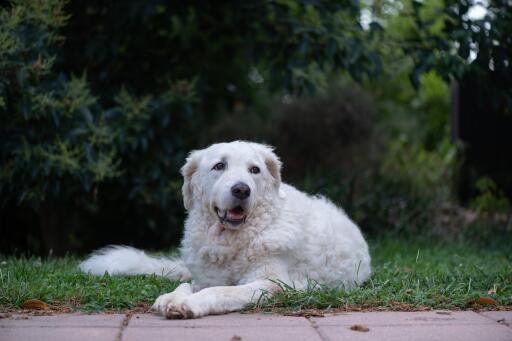
They are not a pet breed.
Bichon dogs are a cute, small and fluffy companion dog. They were originally bred to cuddle. They need to be exercised and trained regularly. They should be trained gently and with consistency. Bichons can be great family dogs. However, they might not be suitable for families with small children. Bichons can be injured by rough play and may snap at scared children because of their small size.
Bichons can be considered to be a pet, but they are not a toy dog. Their height is quite small but they can weigh between nine and eleven inches. This makes them an ideal choice for apartment living.
They are resilient
The Bichon dog breed is hardy, requiring very little maintenance. They are small and intelligent dogs. They are easy to train. These dogs can be a great addition to a family with other pets. They can live with older children or other animals and are not aggressive. However, if you don't have a lot of time to groom your pet, they may not be the best choice for your family.
Bichons have a rich heritage. The Bichon dogs were first used as sailing dogs and herding dogs by the Spanish and French. They were later used as street performers and in circuses. They were able to use their intelligence and natural intelligence in shows.
They are affectionate

Bichons are a very affectionate breed of dog. They make excellent family pets. They are also very sturdy and small. According to American Kennel Clubs (AKC), Bichons can be classified as a member of the Non-Sporting Group. They are white in color but the puppies are often creamer or yellow. Their eyes are dark and their tails are well-plumed. They are affectionate and love to play.
Bichon dog breeds are very affectionate and can make excellent apartment pets. They are great for apartment living due to their joy and ability of getting along with children.
They are hypoallergenic
Bichon dogs are a great choice for those who are allergic to fur. They are gentle and easy to care for, making them a great pet for anyone with allergies. They are hypoallergenic which means they won't cause any allergies or problems to your skin.
Bichon dog breeds have a curly, curly hair with no undercoat. This type of coat will shed less than other types of dog hair, making them ideal for people who are sensitive to dander. These dogs need to be groomed frequently to remove any excess hair and prevent allergens.
They are not suitable for families with young children.
Bichon dogs do not suit households with young children. Bichons require daily grooming and a lot of attention. They can't be left alone. They need to be loved and cherished by their owners. This breed can be a great companion to older children regardless their age.

This breed is energetic and large, so it is not suitable for families with young children. They can weigh up to 30 kilograms, and the males can grow up to 60 cm tall. Females can weigh in at around 20 kilograms.
They are susceptible to serious health problems
Bichons can become ill from various diseases, especially in their senior years. Heart failure is the leading cause for death in Bichon Frises. Heart failure is caused usually by the weakening and/or loss of a heart valve. This can cause blood leakage around the heart valve. Every year, it is important that your pet be checked for heart conditions.
Hip dysplasia, a serious condition in Bichons, is another. This condition is common in Bichons. Bichons might have difficulty adapting to normal hip joints. It can lead to arthritis if the condition is not treated.
FAQ
What are my considerations before I get an exotic pet?
You need to be careful before you decide to buy an exotic pet. First, you must decide if you will keep the animal as an exotic pet or if your intention to sell it. If you plan to keep it as a pet, make sure you have enough room. You should also know how much you plan to spend on the animal's care. It's not easy to care about an animal. But it's well worth it.
You must find someone to purchase your animal if you intend to sell it. Make sure the person buying your animal knows how to take care of it. Also, make sure that you don't overfeed the animal. This could cause health problems later on.
It is important to research everything about exotic pets before purchasing them. Many websites have information on many species of pets. Avoid falling for any scams.
What should you think about when purchasing a pet for your family?
The first thing to consider is what kind of lifestyle you want for yourself and your family. Do you have any children? What number do you have? Are they still young? Are there any special dietary requirements for them?
Are you concerned about allergies? Do you have any other questions about your pet?
Now, you can think about whether you are looking to find an active companion, quiet lap dog or house-trained cat. Or perhaps a fish tank filled with tropical fish.
If you are thinking about adopting a puppy, be sure to go to a shelter or rescue group to get to know them.
You'll also want to know if the animal has been vaccinated against rabies and other diseases.
The owner should also be asked if the animal will be taken care of while you're away. This way, you won't have to worry about leaving your pet at home alone.
You should remember that pets are a part of your family and that you should not adopt them unless you truly love them!
How can you tell if your dog has fleas
Your pet may be suffering from fleas if he/she is constantly scratching his fur, licking himself excessively, or looks dull and untidy.
Flea infestations may also be indicated if your pet is experiencing redness.
Take your pet to the veterinarian as soon as you can for treatment.
Statistics
- In fact, according to ASPCA, first-year expenses can sum up to nearly $2,000. (petplay.com)
- It's among a relatively few companies that provide policies with a full (100%) coverage option, meaning you are not responsible for any co-payment of bills. (money.com)
- Monthly costs are for a one-year-old female mixed-breed dog and an under one-year-old male domestic shorthair cat, respectively, in excellent health residing in Texas, with a $500 annual deductible, $5,000 annual benefit limit, and 90% reimbursement rate. (usnews.com)
- A 5% affiliation discount may apply to individuals who belong to select military, law enforcement, and service animal training organizations that have a relationship with Nationwide. (usnews.com)
- Here's a sobering reality: when you add up vaccinations, health exams, heartworm medications, litter, collars and leashes, food, and grooming, you can expect a bill of at least $1,000 a year, according to SSPCA. (bustle.com)
External Links
How To
How to train a cat for a pet
You must first know what type of cat you are before you can train him/her. Cats have complex brains. Cats are intelligent, emotional creatures. It is important to understand your cat's personality in order to ensure that he/she behaves well. You must know how to handle him/her properly.
It is important for cats to be independent. This means they don't like being told "no". You may be angry if they tell you "no". If your cat does something wrong, don't force them to do it. You can love your cat, but not as a human being.
If you think that your cat has some problems, then you should try to solve them together. Talk to your cat calmly and gently. Avoid yelling at him/her. Don't make your cat feel bad by yelling at him/her. Also, you cannot force your cat to eat. Sometimes, your cat won't eat. You should offer treats to your child when this happens. However, don't over-indulge as this could lead you to overeating.
Always keep your cat clean. It is important to clean your cat daily. Use a moist cloth to remove dirt and dust. Verify that your cat does not have fleas. Flea bites may cause skin irritation or allergies. Flea bites can cause severe skin irritation so you need to use a flea shampoo.
Cats are social animals. They love spending time with people. It is important that you spend quality time with your pet cat. You can play with your cat, give him/her food, cuddle and brush him/her. These activities will make your cat smile.
If you want to train your cat, then you should start early. Begin training your kitten at two weeks of age. Your kitten should be around three months old to start training him/her. This is the best age to start training your cat.
If you are teaching your cat tricks, it is important to explain each step clearly. For example, when teaching your cat to sit down, you should show him/her the chair first. You should then say "sit" to your cat and reward it/her with a treat. You can repeat these steps until the cat understands.
Remember that cats are smart animals. Cats can quickly figure out how they should perform tasks. They do require patience and perseverance. Do not expect your cat will be able to master any task in a flash. Allow your cat to practice for a while before you give up.
Keep in mind that cats are wild animals. They are naturally curious and playful. If you let your cat run free, he/she might accidentally knock objects away. To avoid accidents, you should place your cat in a safe area where he/she won't hurt himself/herself.